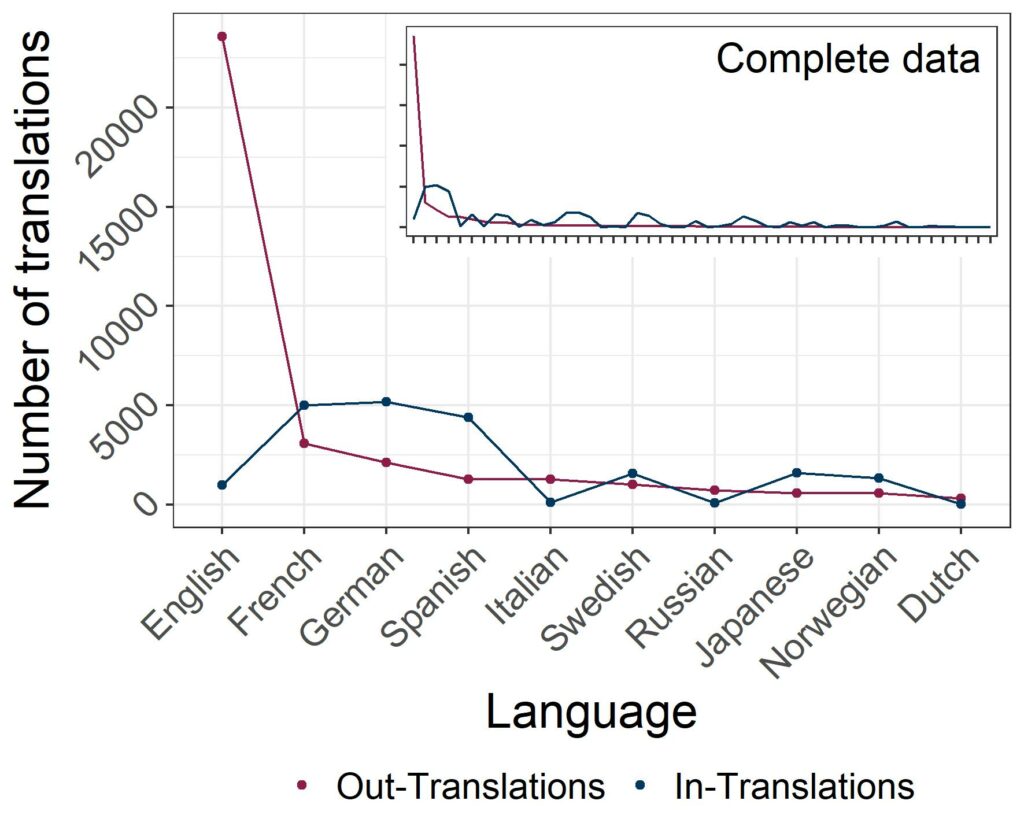Albeit being vital for cultural production and the exchange of ideas, the world of literary translation is marked by profound inequalities between languages. A small number of central languages – including English, French, and German – dominate the world of literary translations. These central languages command high literary prestige, a powerful publishing industry, and often a large population of (native) speakers.
Books emanating from the central languages frequently find wide distribution and are translated into a high number of more peripheral languages. In contrast, books written in languages that occupy a more peripheral position in the literary world rarely attract a high number of translations and often require an initial translation into one of the central languages to achieve wider circulation.

Europe has been largely ignored as a frame of reference in empirical studies of literary fields and translations, even though Europe is a global leading hotspot of book exchanges. Existing research tended to focus either on national markets or on the global literary field.
We argue that Europe constitutes an important intermediate field between the national and the global. The European literary field and European cultural policies create opportunities but also specific constraints for authors, translators, and publishers – all of whom embedded in changing local, European, and global struggles. The precise nature and effect of these opportunities and constraints are currently unknown, however. Research is needed to elucidate (a) how national book markets respond to their integration into a European field and (b) how these processes of Europeanization impact the world of literary translations.